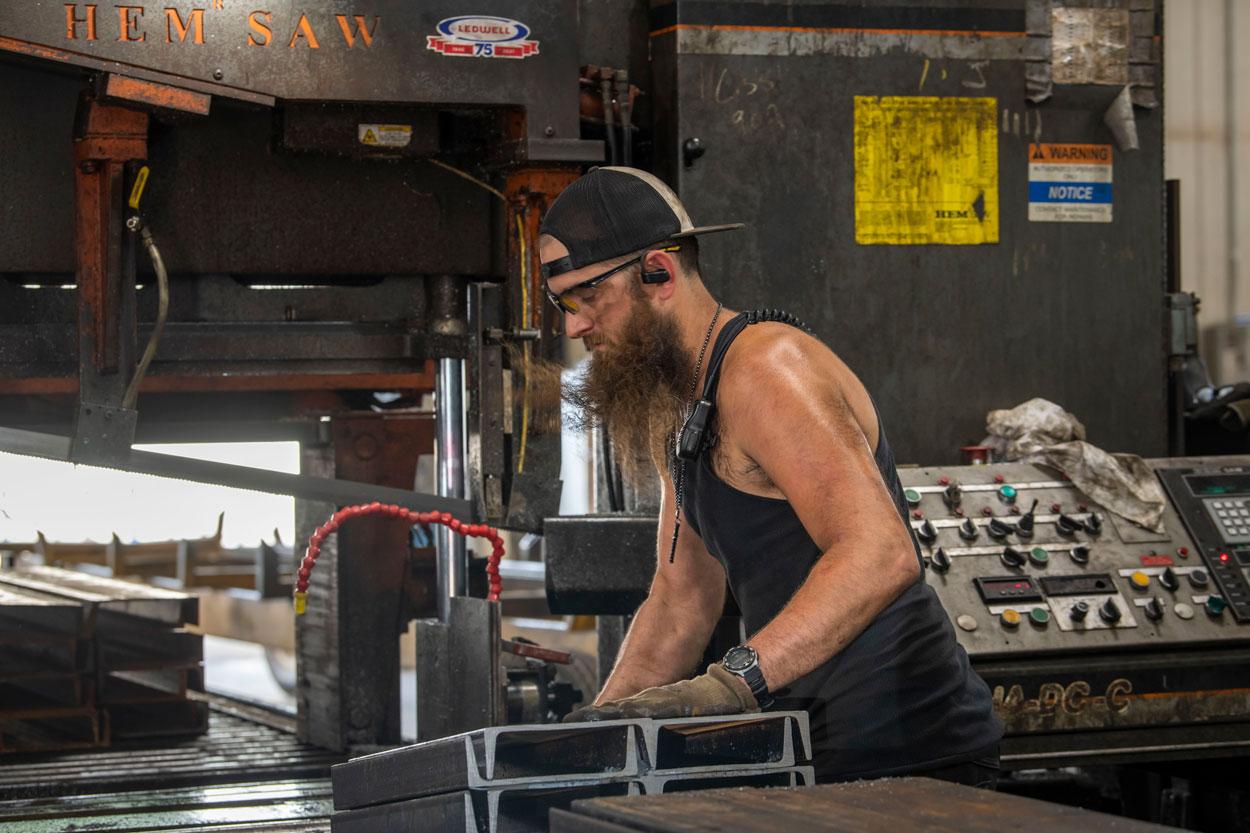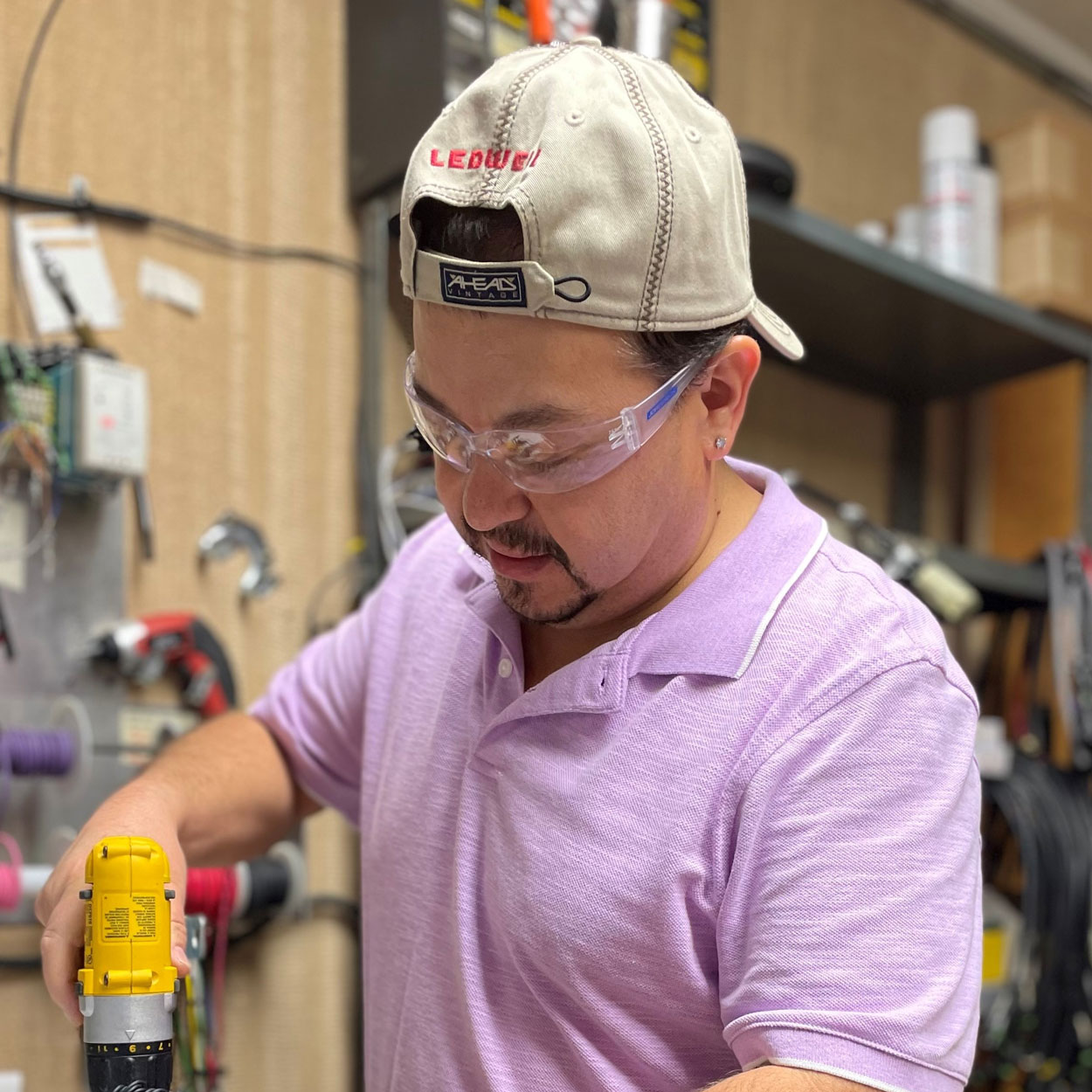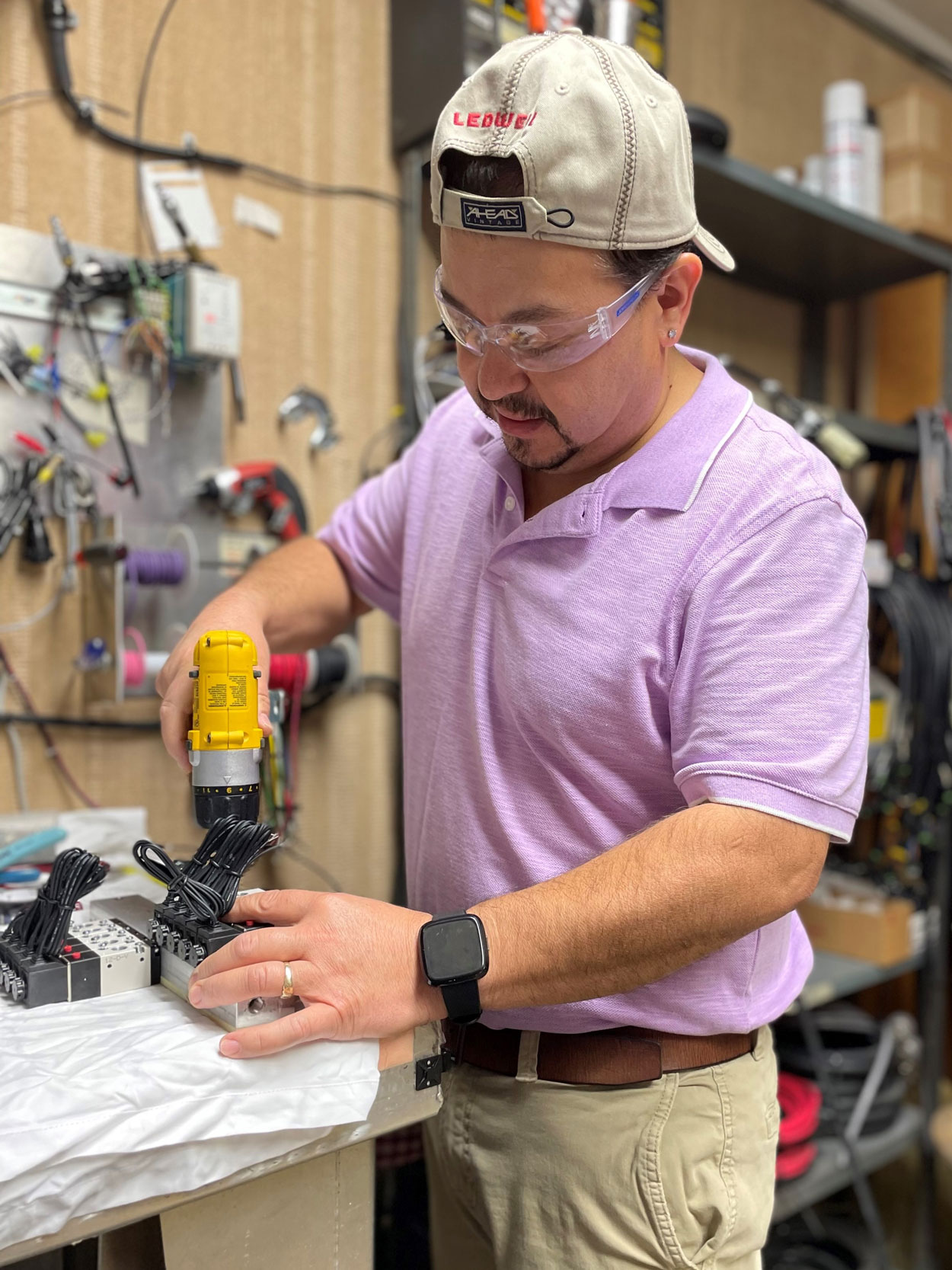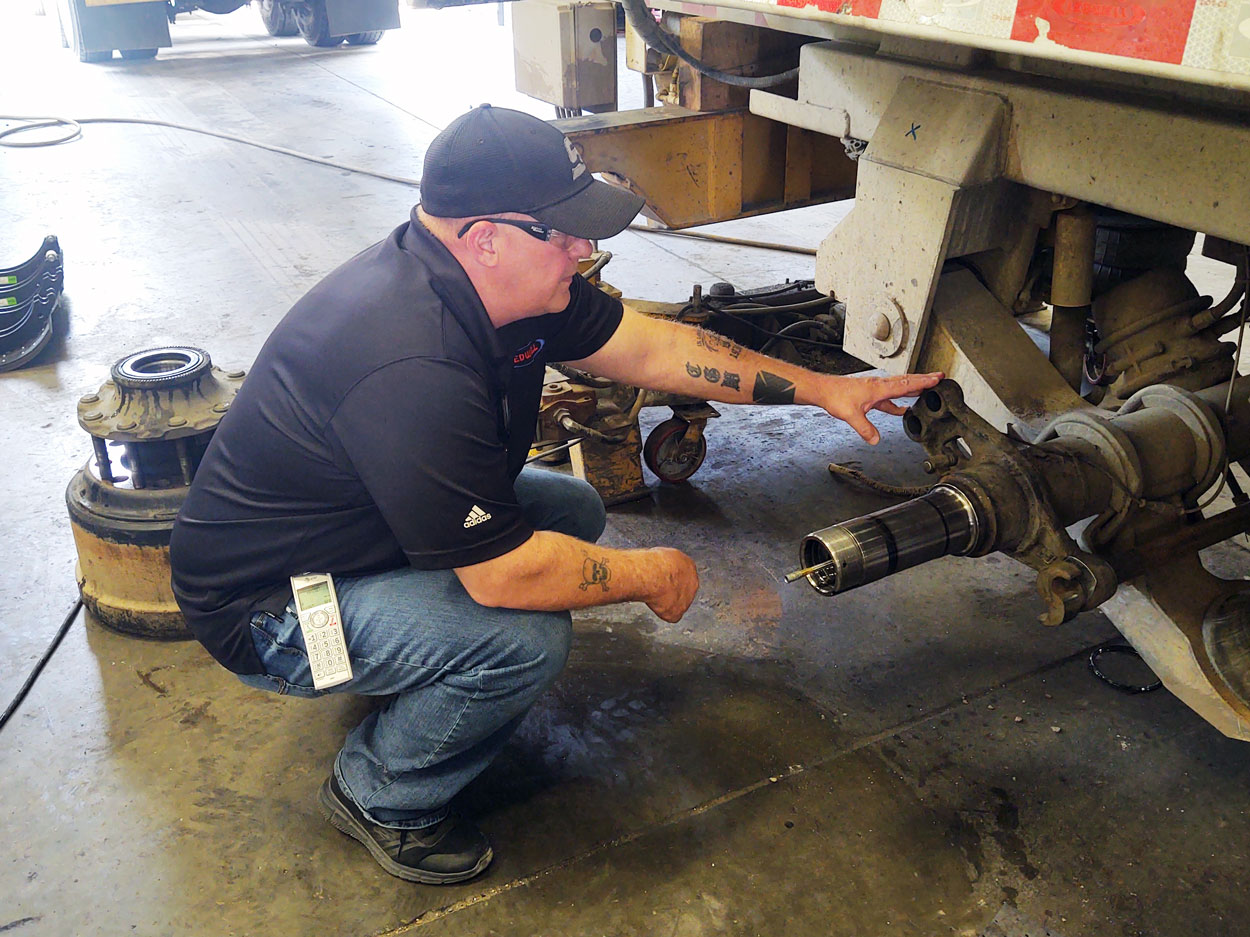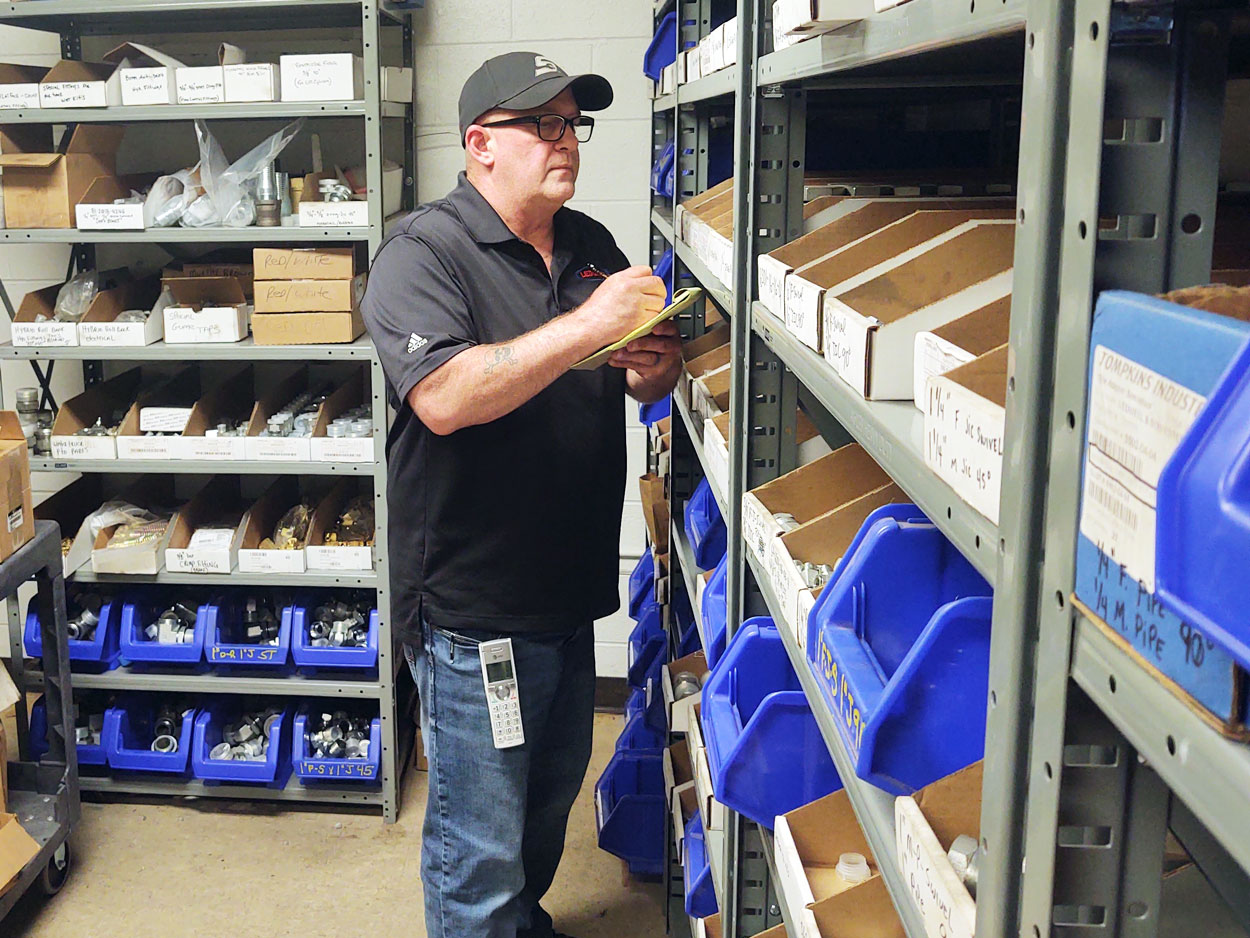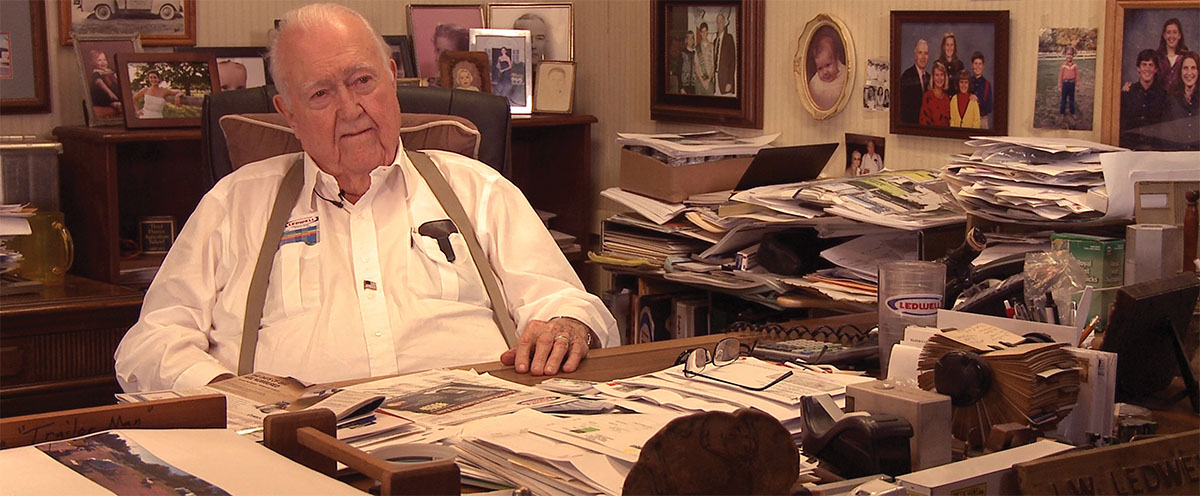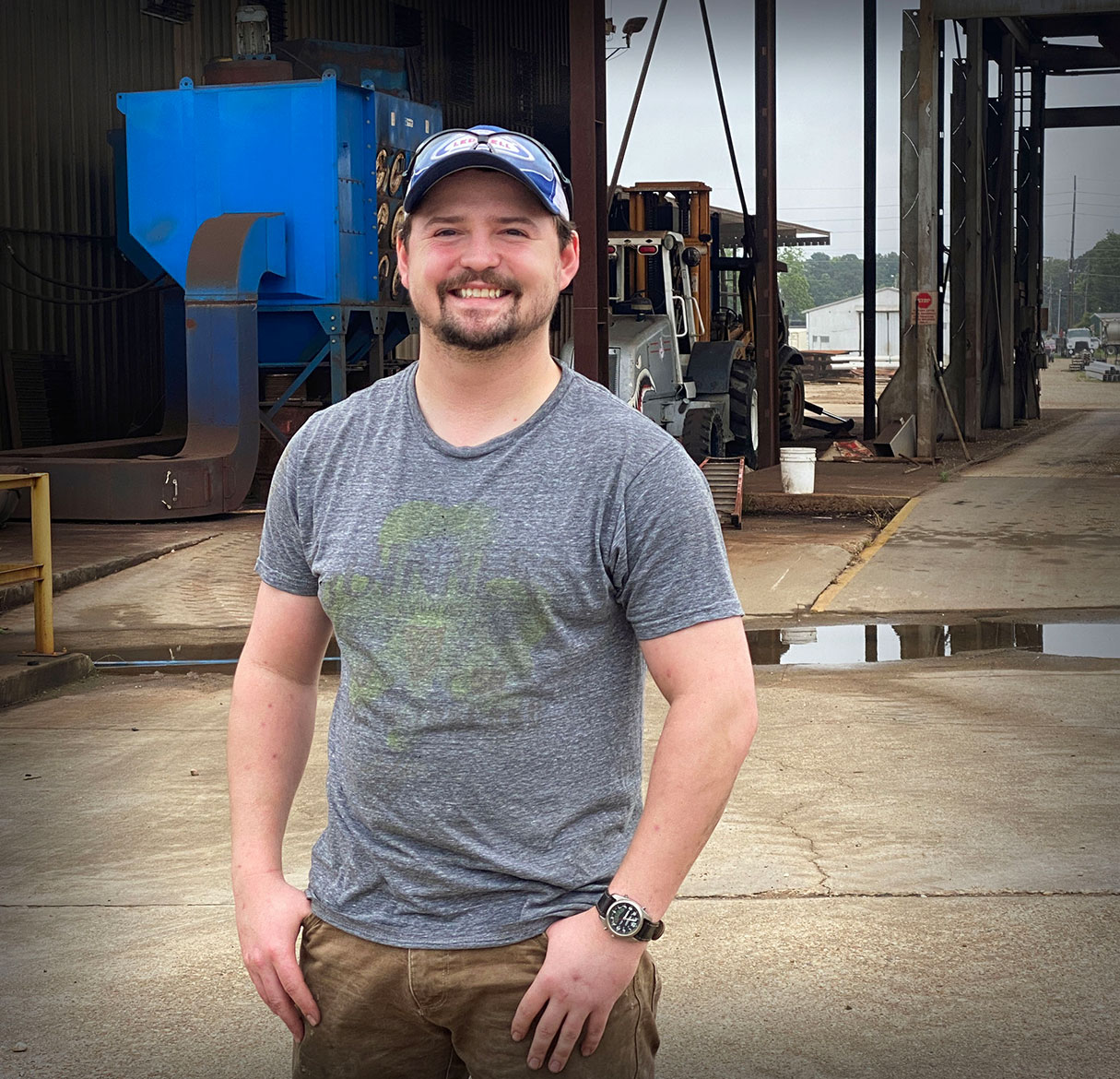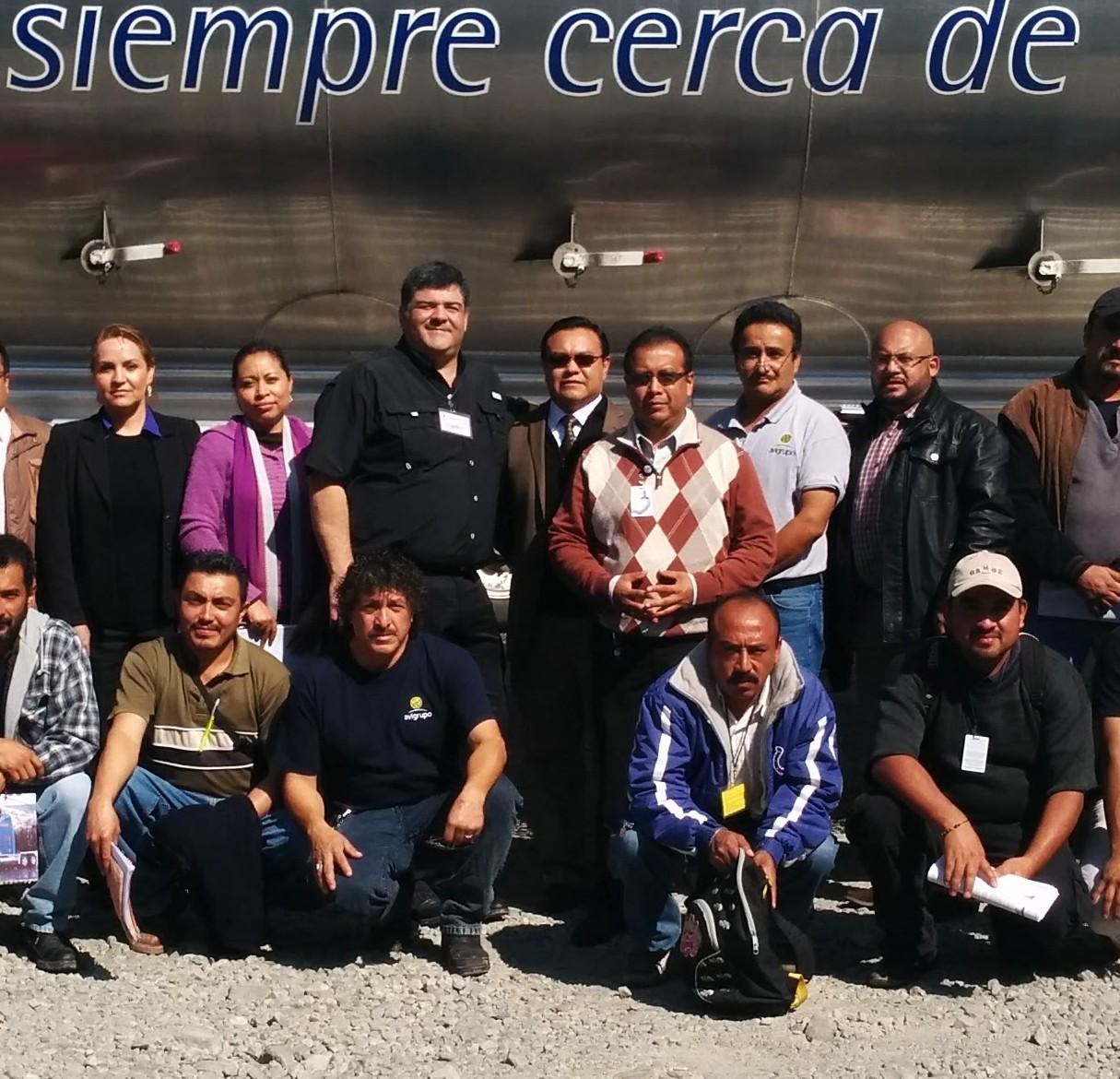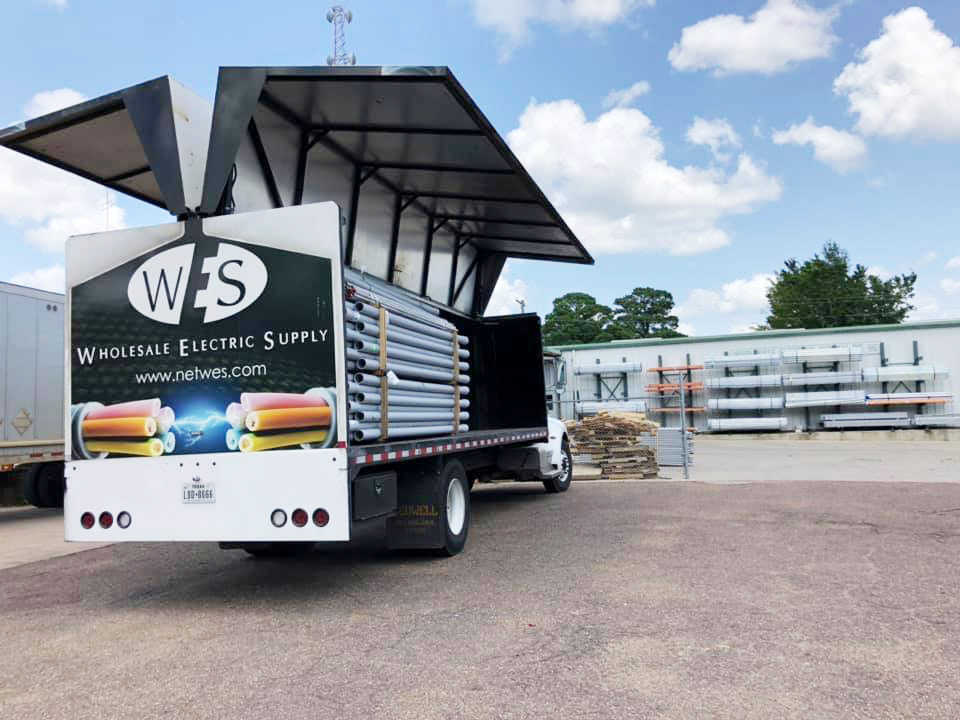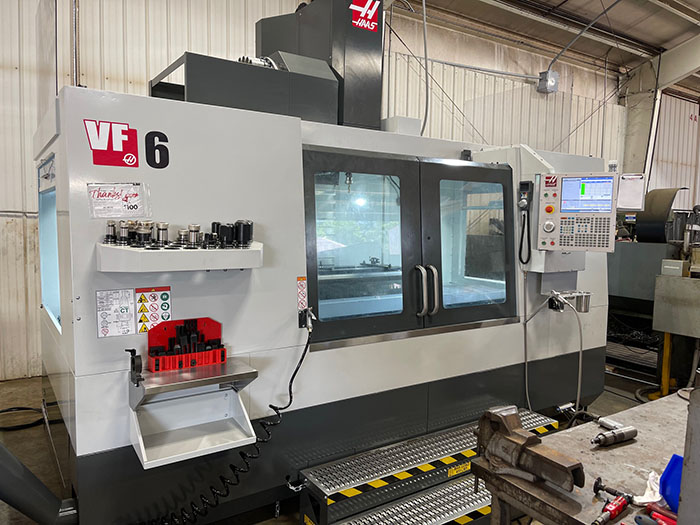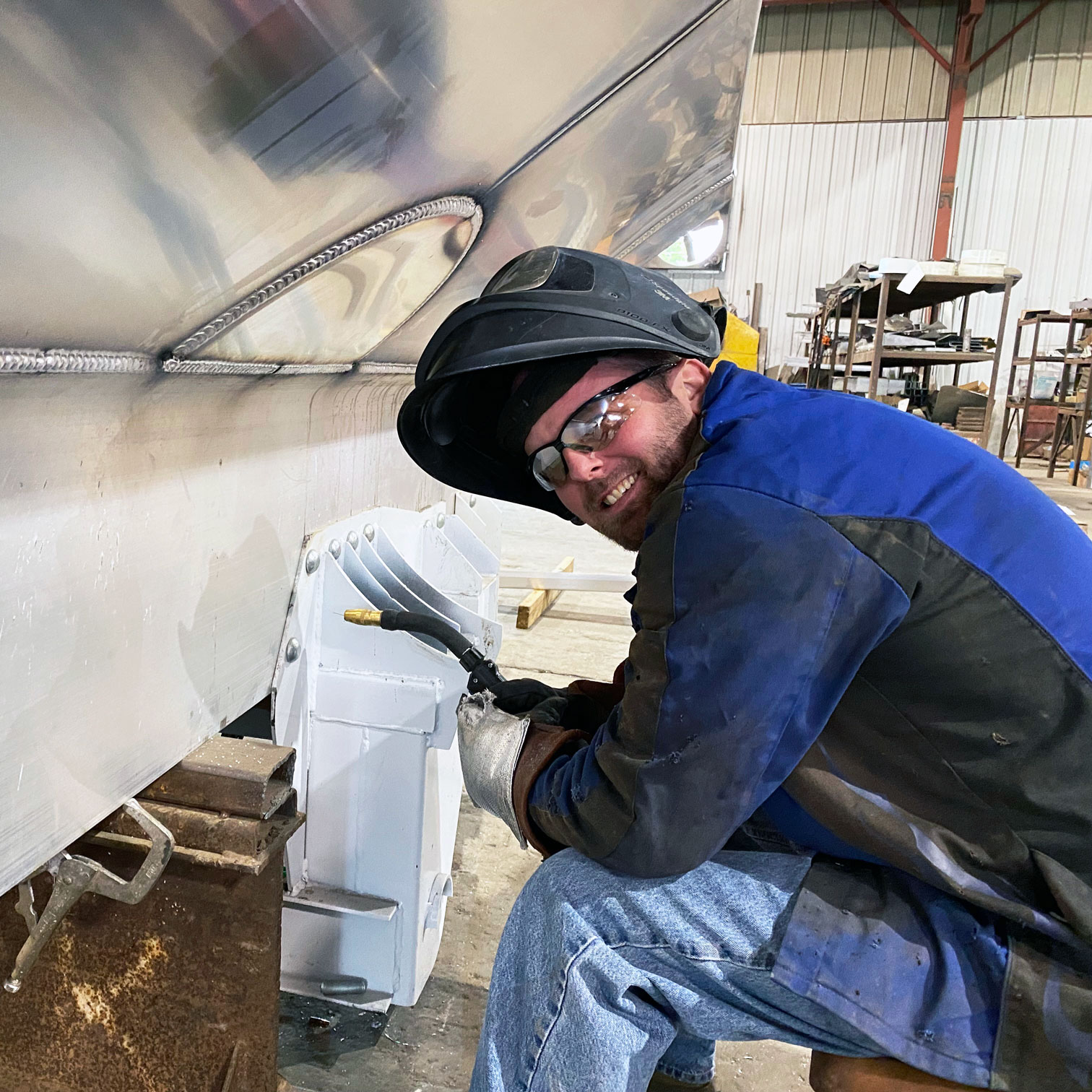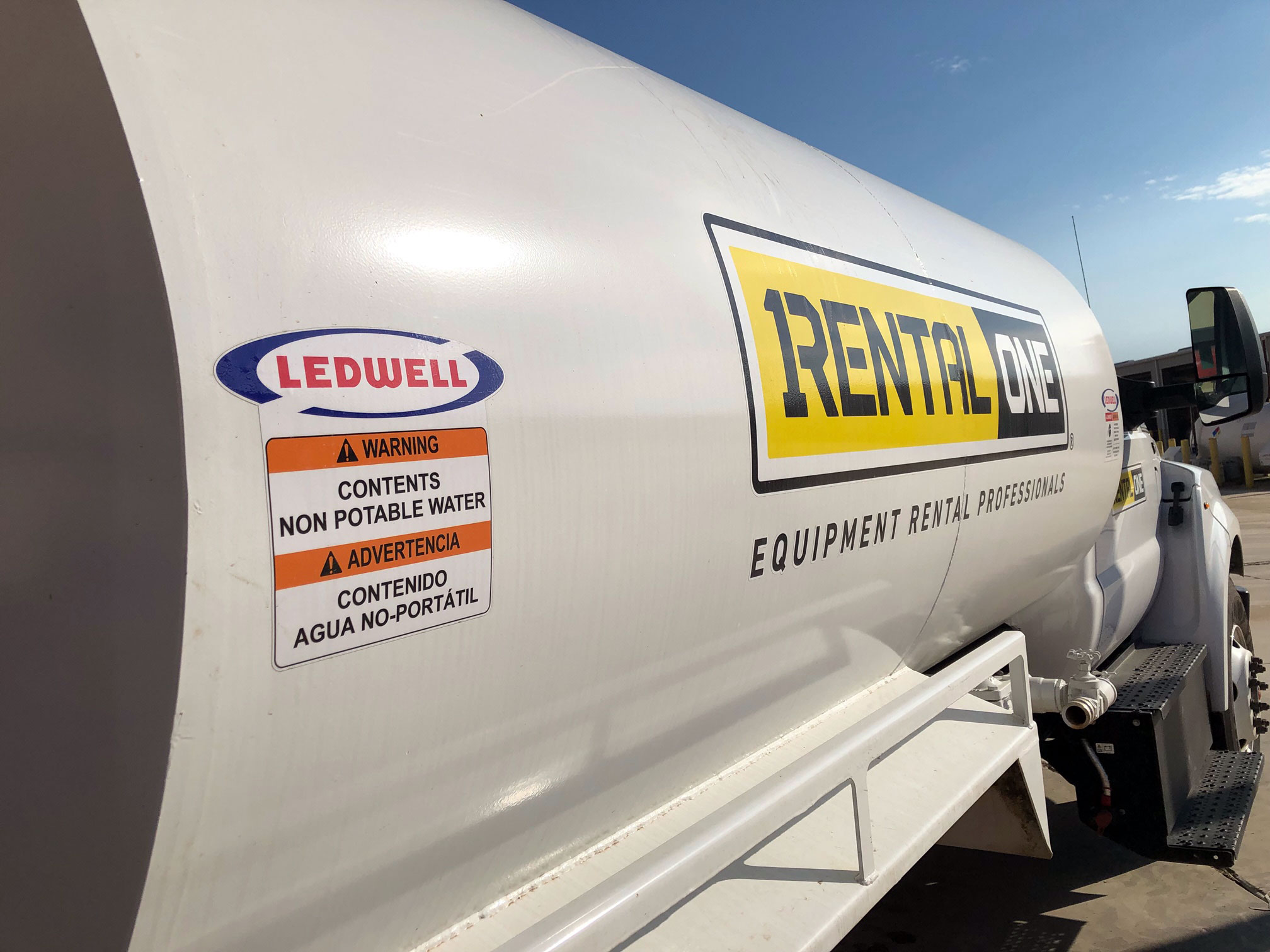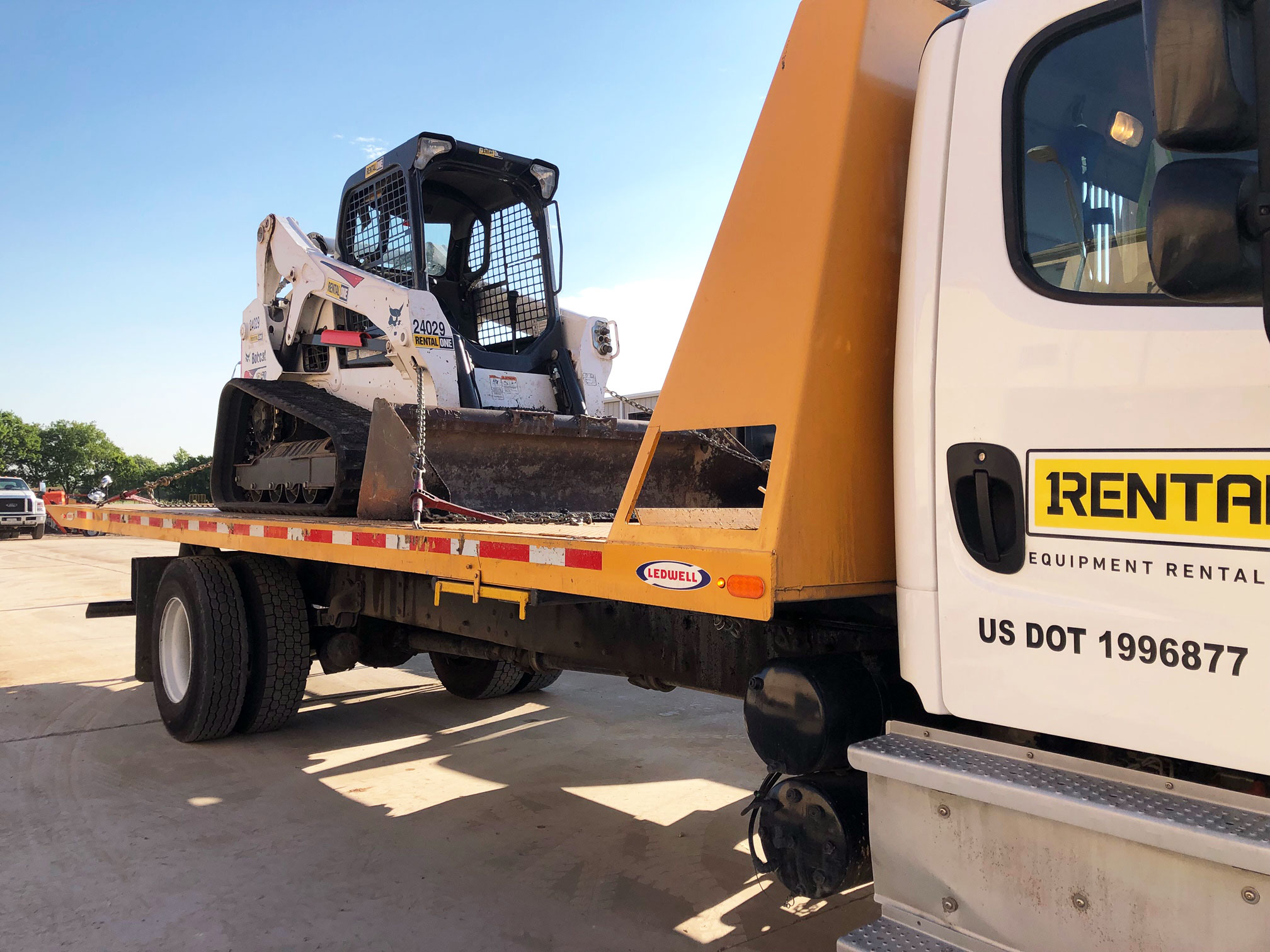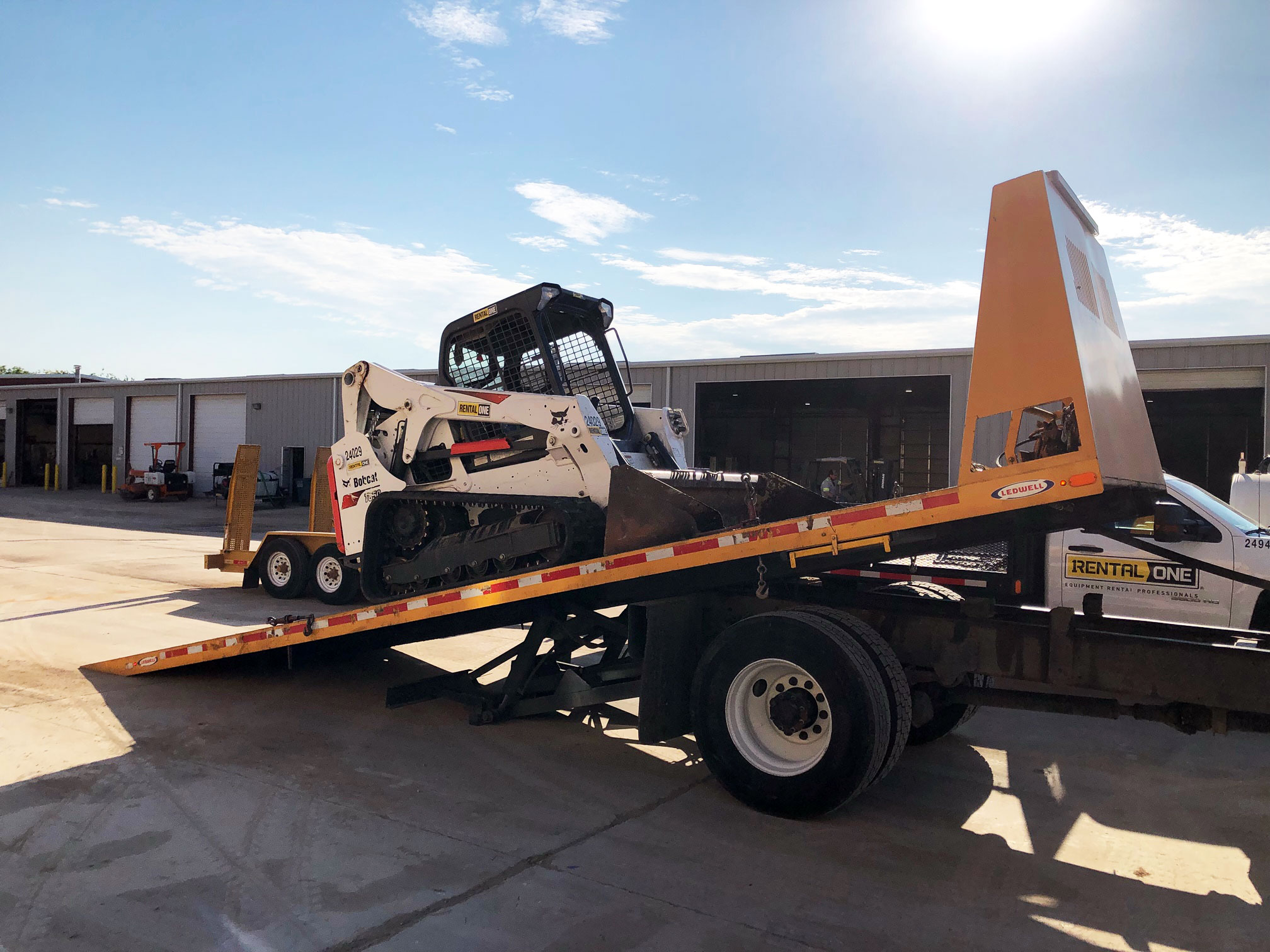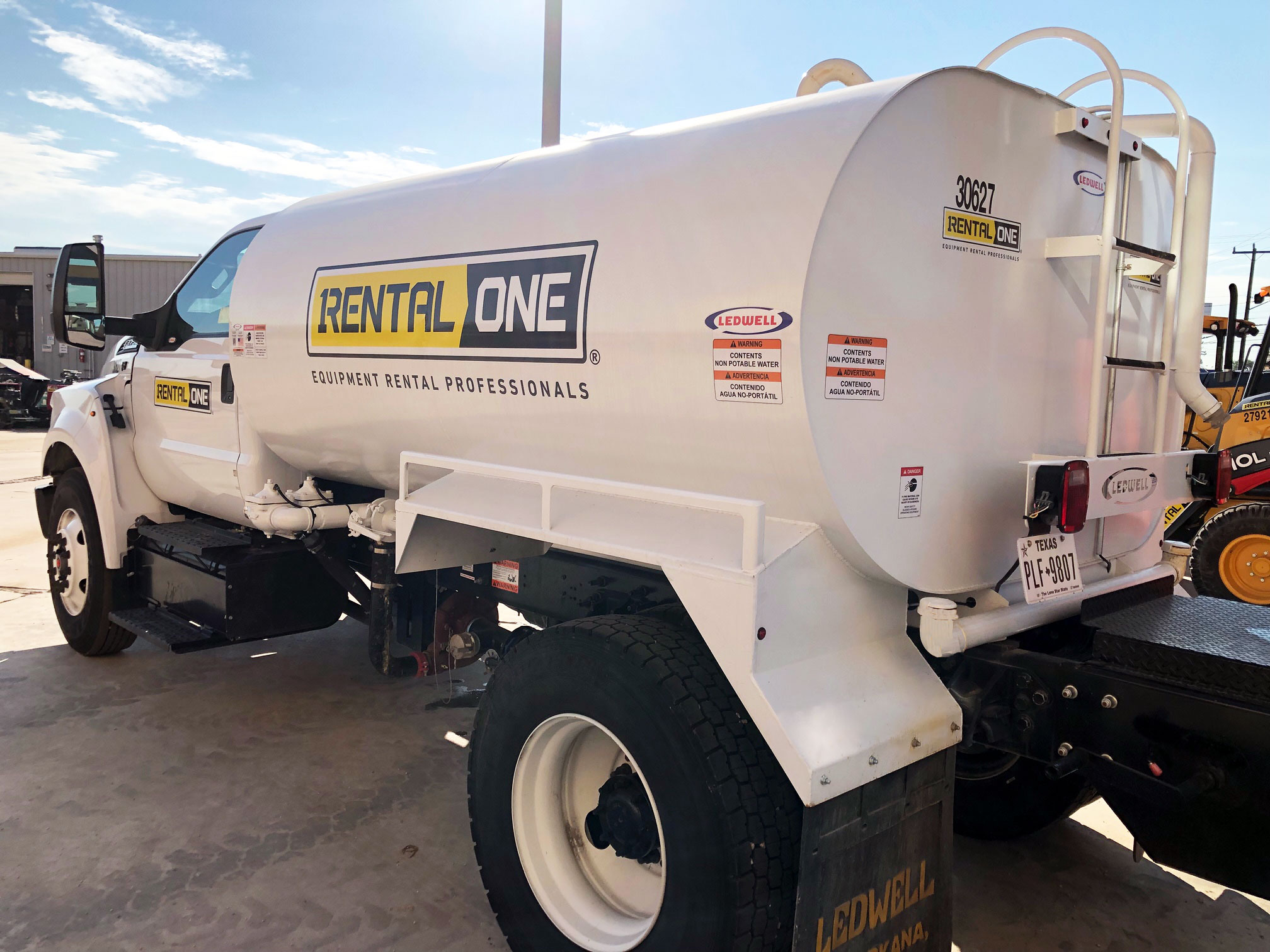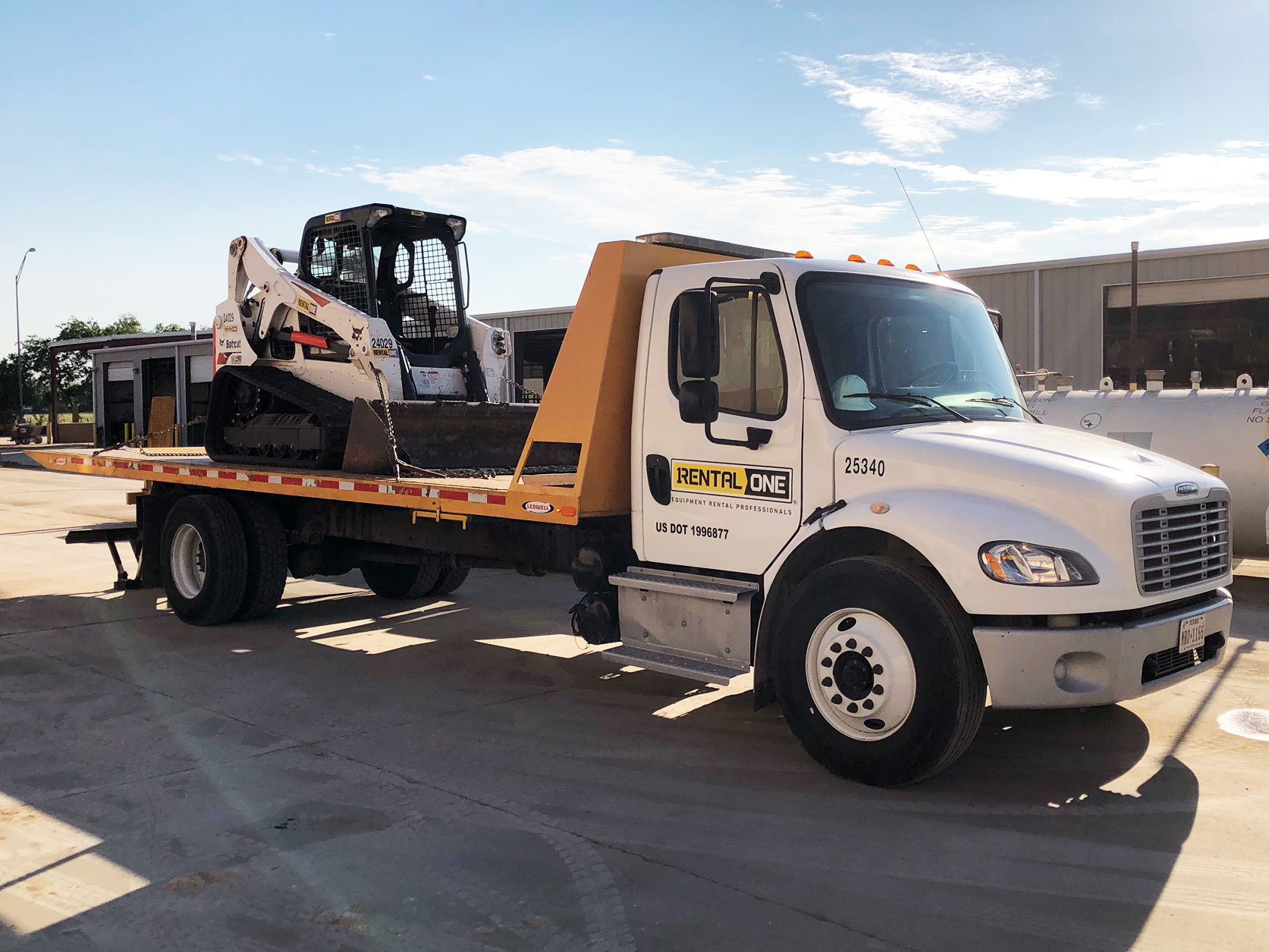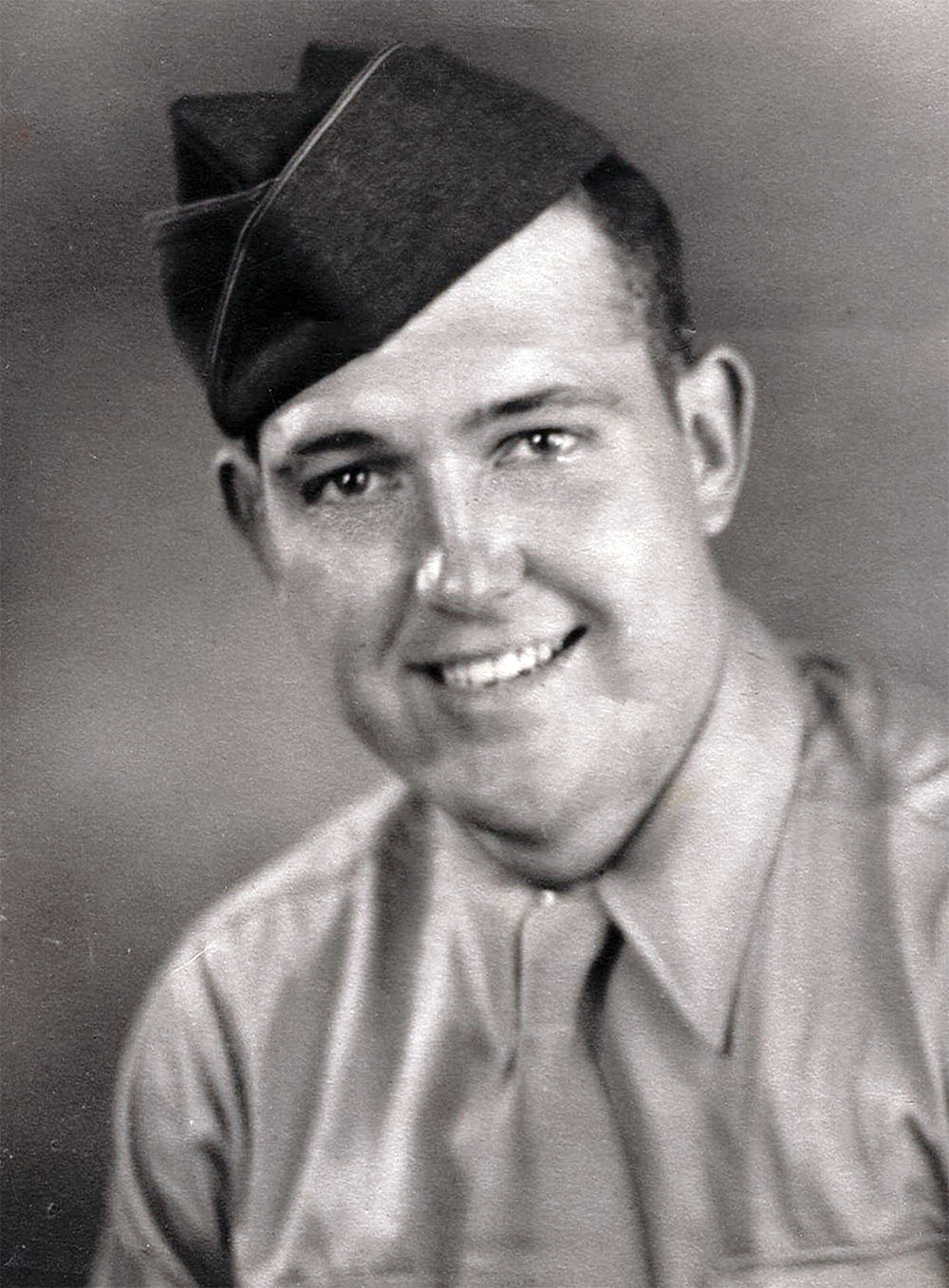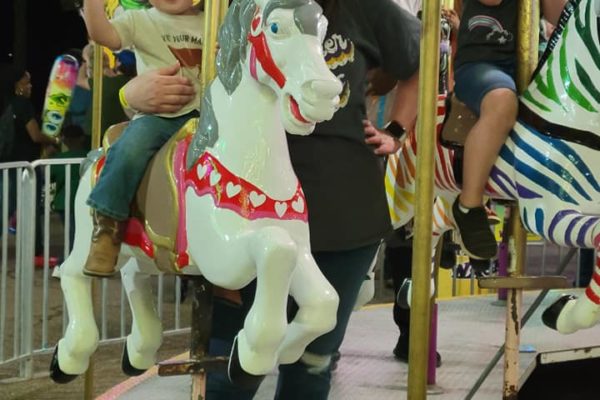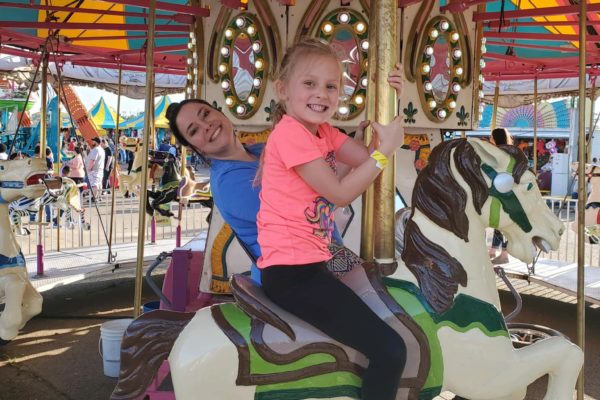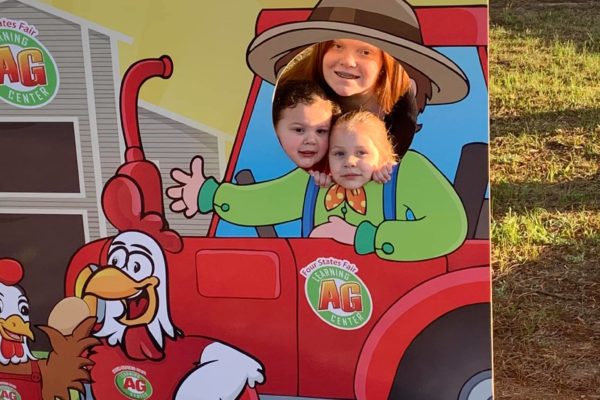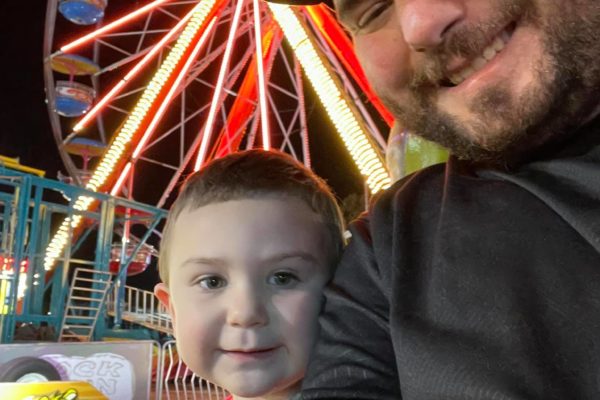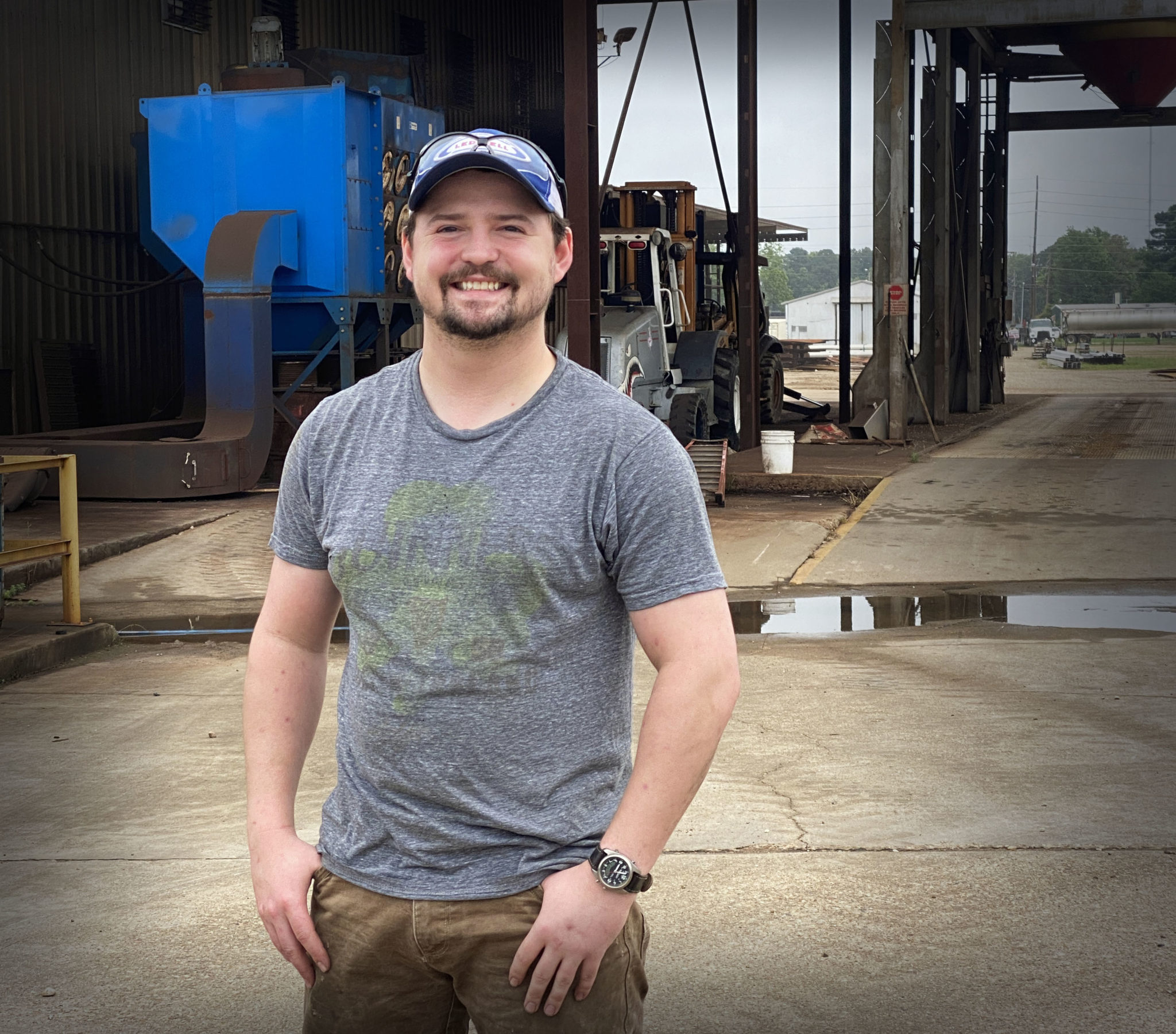That led Hunt, who has a bachelor’s degree in photojournalism from the University of Mississippi and a background as a news photographer, to the welding certification program at Texarkana College.
“My family has a history with welding,” he said. “My great-uncle was an underwater welder in World War II, and my great-grandfather started his own tool and die business,” he said. “I’ve always liked being hands-on. I chose welding because I wanted a profession that allowed me to express myself artistically outside of work tied in with my passion for photography.”
Thanks to a partnership between Ledwell and Texarkana College, Hunt has been able to earn his welding degree while working as an intern in Ledwell’s Feedbody Shop. TC welding coordinator Jill Yates said the Ledwell internship program is the first of its kind in the two-year community college’s welding department.
“The main issue we’ve run into when trying to help our students get internships is that companies want to wait until the students graduate so they can work full-time,” Jill said. “We’ve always had people who worked, but we would usually switch them to the night class if they got a full-time job. We didn’t want to get into a place where the students had to choose between going to work and going to school, and Ledwell didn’t want that either.”
The paid internship program allows for skilled students who have shown good attendance, maintained a GPA of 2.5 or higher, and demonstrated a professional work ethic to work at Ledwell while attending class a limited amount of time each week, depending on what semester of the welding program they’re in. Students can begin earning income and applying their welding skills in the real world while completing their certifications.
“Skill is the number one thing that I’m looking for when recommending students for the program,” Jill said. “After that, it has to be attitude. If they show up on time, they’re always prepared, they’re ready and eager to learn new things, and they jump in to help without being asked; those are the students I’m looking for. When they walk in the door of any business, we want to make sure that they’re the kind of person with a head on their shoulders that’s willing to learn whatever it is that the company needs them to do.”
Hunt said the internship program helped factor into his decision to attend TC.
“After talking to Jill, the first thing I asked her after I said I was interested in coming to TC for welding was, ‘How hard is it for me to get a job after I get a degree?'” he said. “She said, ‘You can get a job before you even graduate.’ And she was right.”
Brock Foster, a welder in Ledwell’s Trailer Shop, graduated from TC in 2020 with his one-year certificate in welding. He started learning welding as a dual credit student in high school, then worked at Ledwell as part of the internship program throughout his second and third semesters.
“This was a great opportunity to get real-world experience early so that I don’t have to wait to earn a good income,” he said.
Hunt said he values the on-the-job experience he has gained during the internship program.
“This is a great place to get your feet wet and really experience what the real world is like,” he said. “Seeing how things are manufactured at a large scale has been really cool. There’s only so much you can learn in the classroom that prepares you for a job, but once you get out there, the difference is night and day.”
Jill said that TC and Ledwell are observing and adjusting the program as it progresses, and she hopes to create a model she can follow with other employers.
“The main thing for the employer is the ability to have the local, homegrown skill, that labor force that’s right here in the area,” she said. “Ledwell knows that our interns will come in knowing the basics of welding and metallurgy—that’s less time Ledwell has to focus on how you hold the gun, all of those little things our students learn how to do.”
Sarah Carpenter, Ledwell community outreach coordinator, said Ledwell has the opportunity to gain seasoned employees from the program.
“Anytime you get hands-on experience, it’s going to help you learn more than just a textbook,” she said. “If they finish the program and they’re in good standing, we can hopefully hire them on as an employee. Then they’re a skilled worker, and they come in knowing about who we are, our culture, and our people. It takes away some of that learning curve.”
